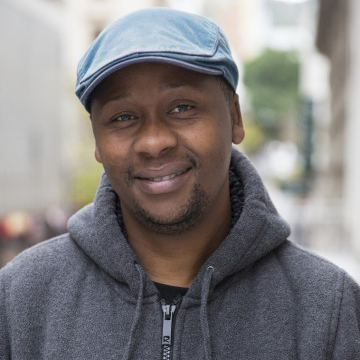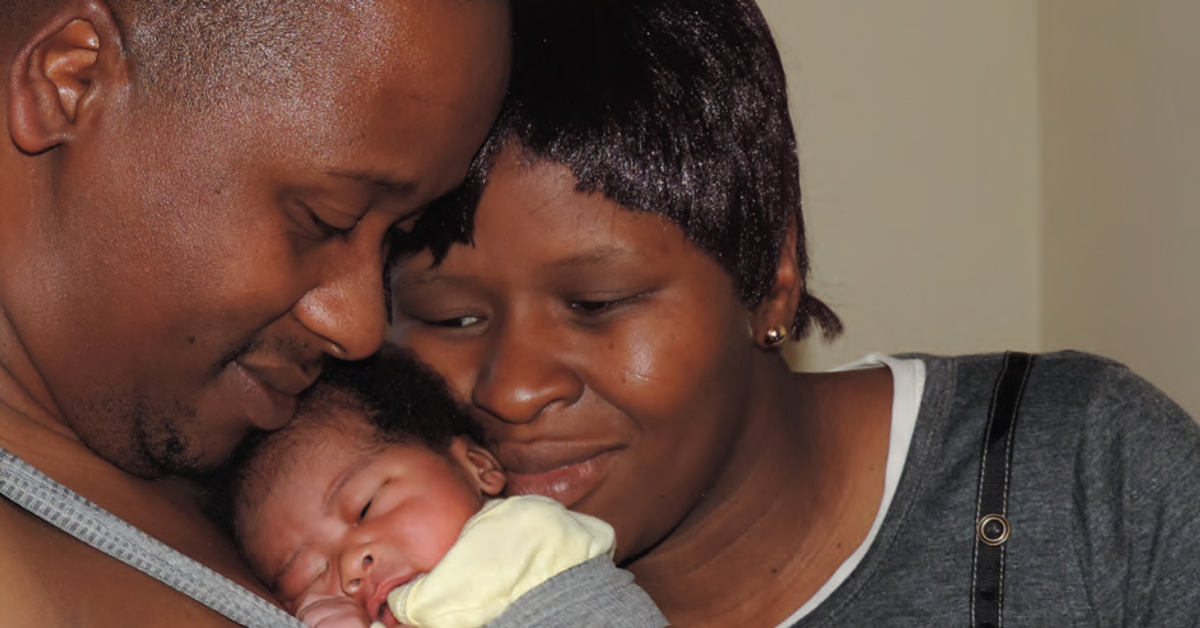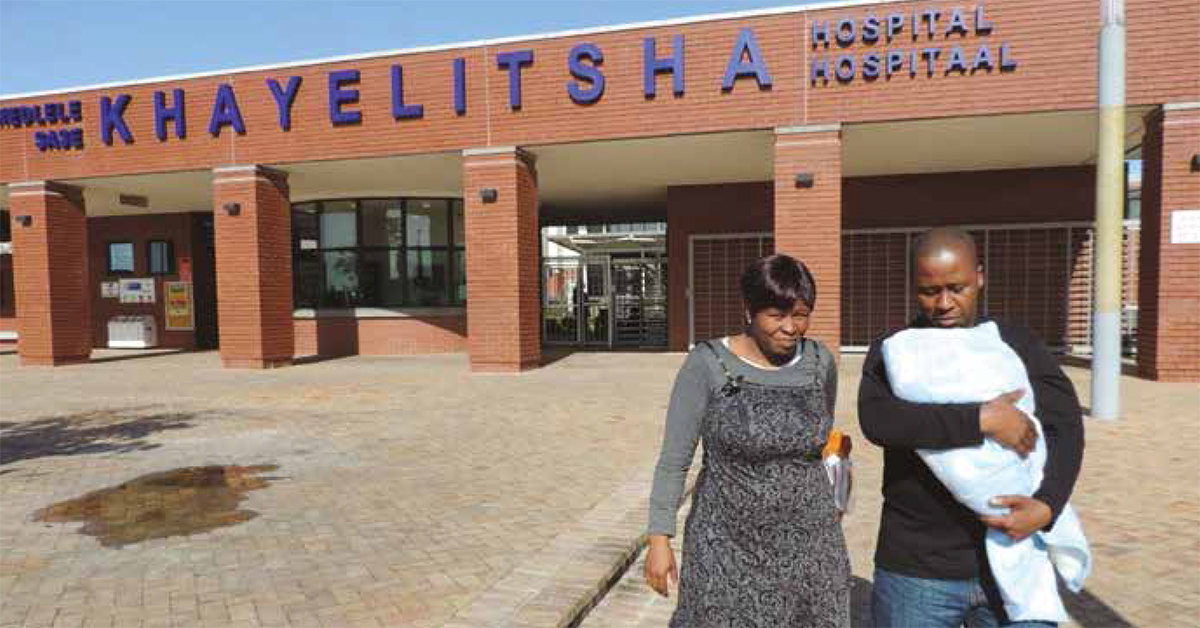Men can play an important role when it comes to breastfeeding. In the following interview, Thulani Velebayi, a MenCare Trainer with Sonke Gender Justice, speaks about his understanding of and experience with breastfeeding. This interview originally appeared in the August 2015 print issue of Your Wellness Matters, a South African publication.
 Thulani, please tell us a bit about yourself.
Thulani, please tell us a bit about yourself.
My name is Thulani Velebayi and I’m married to Yolanda Velebayi. Originally we are from the Eastern Cape, near a town called King William’s Town, from a small village named Ezeleni Kwa Nothenga. We own a house in the Phakamisa township. In the Western Cape we live at Mfuleni Ext 6.
How old are you and your partner?
I’m 38 years old and my wife is 34.
In which professions are the two of you?
I am a MenCare+ Trainer South Africa at Sonke Gender Justice, promoting positive parenting, and my wife is self-employed.
Is this your first child?
No, we have 3 children – a 10-year-old girl named Avuzwa, 3-year-old girl named Buncwane, and an 11-month-old boy named Luncuthu, who is still breastfeeding.
What were your thoughts about breastfeeding before your child was born? And now?
We both come from families that promote breastfeeding as the best for newborn babies, so our thoughts about breastfeeding were the same even before our children were born – we both believe that breastfeeding is best for babies because it helps them grow quicker.
Did you receive any information on breastfeeding during the pregnancy? What and from where? And was it helpful?
Yes we did, at Site B MOU Clinic. I am actively involved with the MenCare recruitment of fathers for parenting workshops via their partners at MOU during their prenatal care periods. This gives me more opportunities to be involved in breastfeeding talks happening at MOU.
I also attended breastfeeding classes with my wife during the pregnancy of our second and third children. We were even made aware that breastfeeding is … important to and possible for HIV-positive couples, as long as the mother’s immune system is monitored. She can breastfeed until the baby is 12 months old or even older.
Do you feel responsible for the feeding of the baby? If so, how involved are you and how do you assist?
Definitely, yes. I always massage my partner before she breastfeeds so that she produces more milk, and I wipe up her breasts with a warm cloth so that there will be more milk and that the breasts are clean for baby, too. We sometimes breastfeed the baby together. …When a baby is three days old, we train the baby on finding the nipple of the breast – my wife holds the baby, then uses four fingers to push up underneath the breast while supported by her thumb on top, then I will assist the baby to reach the breast. When the baby can do that, it is now [time] for him/her to find the breast again without any help, and by doing so we are promoting [independence for] the baby.

What challenges have you met in your efforts to help with the feeding?
Not much with my partner, but what worries us is when other mothers drink alcohol while breastfeeding, and that really challenges us because it gives harm to babies.
How do you deal with breastfeeding difficulties your partner might experience? Do you provide support?
When babies start getting teeth, they have a tendency to bite the breast of their mothers and mothers suffer from pain. Sometimes they want to stop breastfeeding because of the pain, and my duty is to support my wife and to make her understand that process so that she continues with breastfeeding.
Have you sought assistance from other parties in an effort to learn more about breastfeeding?
Yes, at the clinic during talks about breastfeeding.
Do you feel that there are enough resources available to assist men in supporting breastfeeding? If you know any, please share these.
There are a few resources – talks at clinics during pre- and post-natal periods, although the clinics need to be more user-friendly so that when men reach the facilities, they receive a warm welcome. Posters inside and outside clinics that speak to both parents; talks not only happening at clinics, but elsewhere also, to reach men in the communities are also good ideas. But also we as men already doing this must encourage other men to accompany their partners during clinic visits so that they can get tips. Government and other partners should support Sonke Gender Justice, as Sonke is the organization running co-parenting workshops for men, encouraging them to participate in caregiving, and promoting fair, non-violent relationships.

What has the experience of breastfeeding been like for you (the highs and lows)?
For me, participating in breastfeeding gave me an opportunity to bond with my babies and with my partner too. It also taught me other aspects of baby care, such as learning that a father’s presence in a newborn child’s life helps the baby grow. I’ve learnt that mothers need our support as men especially during this period. A low point for me is when I see a father who does not know what role to play in the process.
How does your partner feel about the role you have taken in the breastfeeding of your child?
She feels supported, relieved when she is tired, and not alone. She is very appreciative of my support.
Would you like to offer a word of advice to other fathers about supporting breastfeeding?
Fathers-to-be, current fathers, and father figures, let us join our hands together and support mothers during breastfeeding, playing our role in building a strong family bond, and closing the gap of absent fathers.